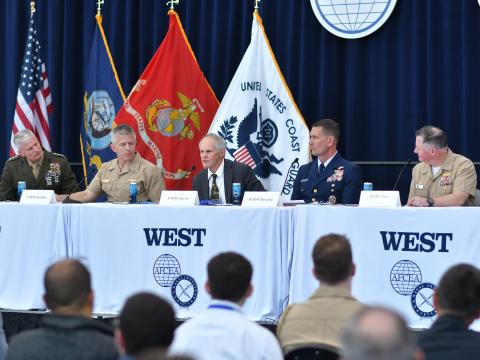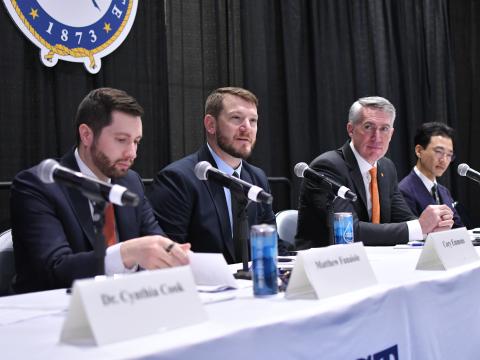Risks of Alienating U.S. Allies
Global powers now see the United States differently. This is impacting intelligence and alliances and could ultimately define the United States' success or failure, intelligence experts said at the 2025 Intelligence & National Security Summit on September 18.
Brig. Gen. Jarosław Stróżyk, chief of Military Counterintelligence Service, Ministry of National Defense, Republic of Poland, emphasized that Poland is looking for strong and reliable partners as it confronts Russian aggression, supports Ukraine and hosts NATO operations in proximity to the war.
“Because of the consequential changes in our region and in Europe, of course, and in some other places, we are looking for strong and reliable partners,” the Polish general emphasized. “We need very strong political, military and industrial cooperation, of course, to include our major partner, the United States.”
The United States needs to act from its source of strength—its economy—with tariffs and other trade policies, said Col. John Mills, USA (Ret.), deputy assistant secretary, U.S. Department of State, voicing President Donald Trump's policies.
“We are obviously living in a different era, with raging wars in Europe, tension in Asia from China,” Mills explained. “In many ways, it is a trilateral world that we're living in. And one of the the biggest things is just a focus on national security spending.”
This is indeed a key metric for the United States in its partnerships, Mills said.
“Last year, we were just discussing and debating whether 2% was enough, and frankly, many countries were not really close to 2%,” he said. “But now, in a far more realistic and robust world, a 5% pace for NATO … is the signal of what is going on. What really constitutes a true partner is really a contribution to national security.”
Meanwhile, Rear Adm. Michael Studeman, USN (Ret.), who is on the board of advisers for the National Bureau of Asian Research, stressed that a transactional approach with our adversaries is not working.
“I disagree,” Studeman stated. “I don't subscribe to those views. I think that we have our own interests, and we pursue them with all instruments of national power. But I also believe that simply doing transactional or tariffs, these things drive our friends away.”
In addition, he said years and years of investments in certain relationships are jeopardized when the United States drives allies away.
“We have to be careful overusing any one instrument, and this will have a backlash,” he stated. “It is already showing up the limits of your power, and so you can squander a lot of that trust by simply going into an extraction state.”
We need very strong political, military and industrial cooperation, of course, to include our major partner, the United States.
Stróżyk warned that Russia’s approach will not change, even in five or 10 years.
“We strongly believe that your country will be present in Europe, and we believe NATO will be strong, and adapting to the new reality with still the same threat will be difficult. It is quite hard to find new partners," Stróżyk said.
Lastly, Studeman added that strong moves have lasting impacts. “People make judgments about whether or not they want to work with the American side or not, and once burned, they're going to feel those scars for a long time to come. We have to realize that there's a bunch of intangibles here, not just a bottom line on whether or not we increase the stock of three companies in the United States.”
Finally, Studeman warned that by weakening the United States' position, it risks “handing a win” to China.
The 2025 Intelligence & National Security Summit is organized by AFCEA International and INSA. SIGNAL Media is the official media of AFCEA International.




Comments